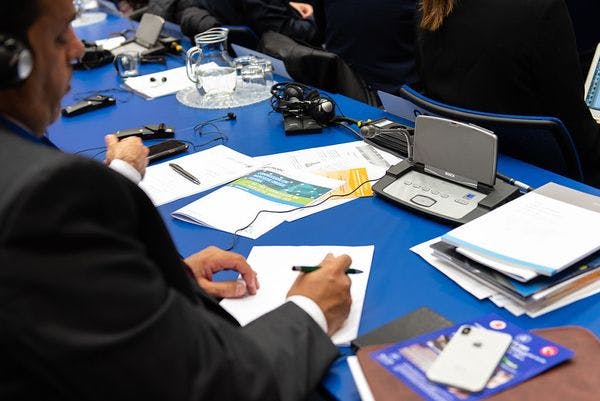Flickr - UNIS Vienna - CC BY-NC-ND 2.0
UN Commission on Narcotic Drugs once again postpones key cannabis vote
By Alexander Lekhtman, Filter Magazine
The United Nations Commission on Narcotic Drugs (CND) has decided to delay until December a vote due to take place this week on the potential global rescheduling of cannabis. The CND—which is meeting in Vienna, Austria from March 2-6—was due to vote on a set of recommendations from the World Health Organization (WHO) to loosen restrictions on cannabis and related substances like CBD and THC.
This is the second time the CND has refused to vote on the recommendations, which the WHO first presented in January 2019.
The CND is the UN’s central drug policy-making body, comprising 53 member states representing each continent and region. Like the Drug Enforcement Agency in the US, the CND classifies or schedules drugs—per the 1961, 1971 and 1988 global drug control conventions. Following review, it can de-schedule or reclassify drugs, thereby influencing how countries around the world control them.
The WHO recommendations include the following:
Remove cannabis flower and resin from Schedule 4 of the 1961 drug convention, the most restrictive category—for drugs deemed to be most liable for problematic use and to have no therapeutic effects. Cannabis would be transferred to the slightly less restrictive Schedule 1, and would still be strictly controlled. But it would then become easier for governments to allow medical and scientific research on cannabis, which the WHO says shows good evidence for having therapeutic uses. Schedule 1 drugs can be made available for patients on prescription.
Remove THC in all its forms from the 1971 drug convention and place it with cannabis in Schedule 1 of the 1961 convention. The WHO effectively thinks that classifying THC and cannabis together would be more consistent and less confusing.
Remove extracts and tinctures of cannabis from Schedule 1 of the 1961 convention, declassifying them entirely, because such preparations may have varying levels of THC, have no psychoactivity and be therapeutic.
Place pharmaceutical preparations of 9-THC (such as Marinol, Syndros, or Sativex) in Schedule 3 of the 1961 convention, which includes drugs with no deemed likelihood of problematic use or ill effects.
Completely remove pure CBD and low-THC CBD products from all drug conventions.
Member states variously reacted to the new delay with frustration or relief. “We do regret that the CND was unable to take action on the WHO cannabis recommendations this week, given that Member States have been working hard since February 2019 to engage in an in-depth consultative process on the legal, administrative, social and economic impacts of the recommendations,” said James Walsh, leader of the US delegation to the CND.
It may seem surprising that Walsh—an Obama-era appointee who now serves under President Trump—is pushing for a CND vote, though he’s not necessarily saying he supports the recommendations. But the US delegation’s focus is on what it considers more pressing drug control issues.
